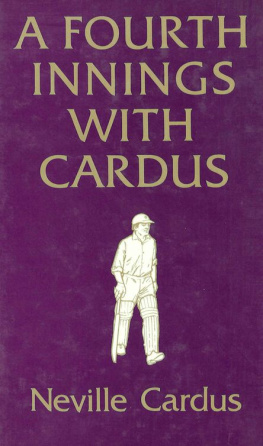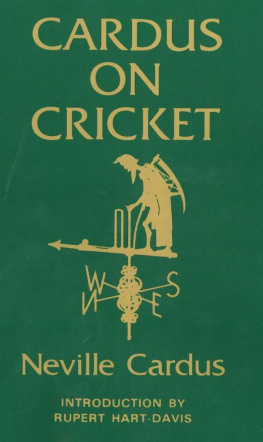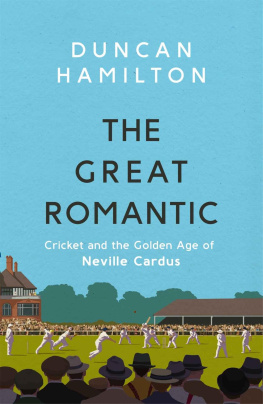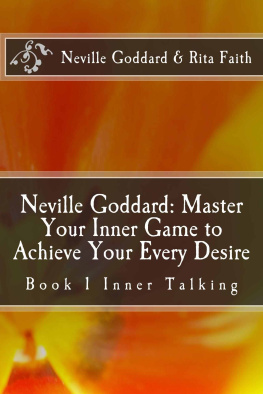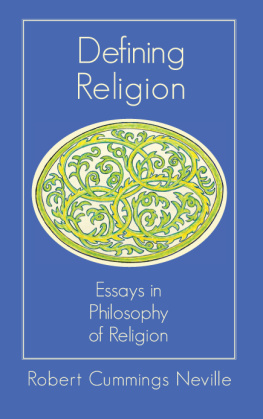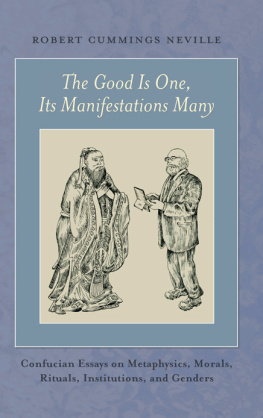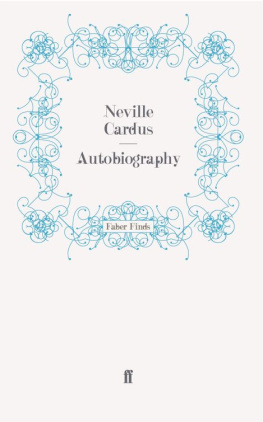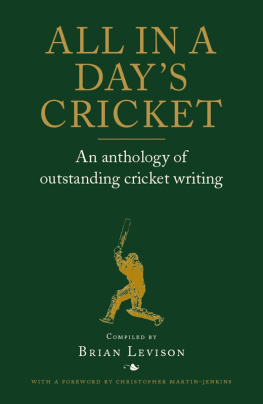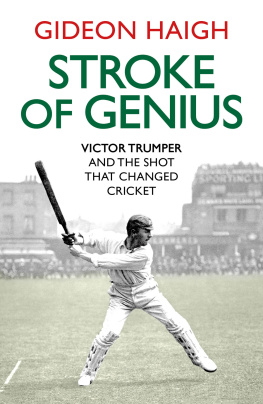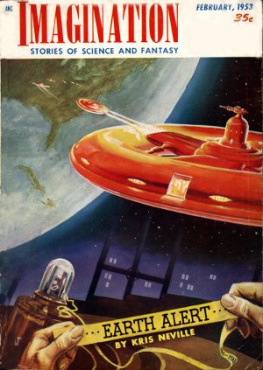P REPARATIONS for the cricket season are going busily forward up and down the land. Groundsmen are again at their fell work. Bats are being oiled, and turnstiles, too. Score-boards are waiting to record history. At the Oval and Nottingham, I believe, they are erecting score-boards built after the Australian model, those that tell you all, if not more, than all: the bowlers analysis over after over; and theres an electrical light that flickers here and there, appearing at the side of a fieldsmans name every time he moves an inch or raises an eyebrow. These score-boards are rather loquacious; I prefer the old-fashioned English ones, which need some co- operation from and collaboration with a card and a pencil. It is pleasant to write down for oneself and to find out for ones self what has happened.
In a week or two the evening papers will be printing the cricket scores, and as we come from Lords at close of play well be able to read the tea-time scores in the extra late night final. I hope they will give us all the details, and not fob us off with Surrey out, 257. Let us have the tables and columns of old again, so that we can repeat, like rubric in ritual, noble numbers. When I was a boy it was poetry and nothing less to read or murmur: c Maclaren, b Brearley, c Tunnicliffe, b Rhodes. There was magic in the necessarily abbreviated c Rnjtsnji, b Lckwd. Let us soon be given a chance to intone, c Compton, b Sims, or even c Cptn, b Sms.
When cricket returns to us each year we welcome it with a warm and almost mystical devotion not given to other games; for it is part of the springtime and the renewal of things. Old men in the clubs emerge and go to Lords in taxisthough I know one stalwart who walks three miles there and three miles home every dayand the fresh air enlivens them. Before long they are telling us, forcibly as ever, that the game is going to the dogs. They wield their rolled umbrellas to show us what a bat was made for.
North, south, east, west, the familiar names will be affectionately pronounced as local giants manifest themselves after winter obscurity. In Yorkshire it will be Hutton this year more than ever; and if Denis Compton should kick the winning goal in the Cup final his greeting on his first appearance at Lords, a few days hence, may easily beggar description. But in all the counties, weak or strong, the crowds and regional patriotism create their own heroes. No Somersetshire lad, whatever his age, looks upon Hutton or Compton with quite the same light in his eyes as shines when he gazes on Gimblett, who no doubt will die in the belief that a maiden-over bowled at him is an insult to family and county pride.
The spirit of Sammy Woods still has influence down at Taunton and Bath, not forgetting Prophet Daniell and the wonderful wild things he said and did while he wore that disreputable hata Trilby, if I am not mistaken. It is possibleall things are possible in Somersetshirethat even the example of Ernest Robson remains an inspiration in a generally dowdy world. It was Robson, a professional of rare vintage, who once came in last when eight runs were needed for a Somersetshire victory. He was at last a veteran; his moustache was grey, though after a droop downwards it curled genially, if not belligerently, up, as ever. When Robson arrived at the wicket in this crisis, the batsman at the other end was Mr R. C. Robertson-Glasgow, who had by this time come to the conclusion, by inference, that it was for him to win the match, if the match were now to be won at all.
Alas, after Mr Robertson-Glasgow had scored two of the eight runs, some misunderstanding between the wickets delivered Robson to the enemy, a desperate fast bowler. Ernest took guard and surveyed the field, stroking his moustache. He patted his blockhole, surveyed the field yet again, and yet again he stroked his moustache. He drove the first ball hurled at him clean over the pavilion, and as the ball soared into the westering sun he watched the course of it, all the time stroking his moustache. Then he looked down the wicket and said: I believe, Mr Robertson-Glasgow, that that is the winning hit.
It is the way cricket is played matters most; and nowadays we make too much of the technical apparatus of it all. If a cricketers mind and every nerve are awake and all his wits, there can be no dullness, whether the scorers are active or not. Makepeace of Lancashire used to stonewall quite passionately. Cricket, more than any other of our manly field sports, depends on individual zest, will, temperyes, temper! Remember Macaulay, of Yorkshire, eyes popping out of his head if an umpire rejected an appeal or demand for leg-before-wicket, or if he were hit to the boundary from the leg-stump? He was a man outragedbut give him the ball, wait for another over; he would be revenged, so help him; he would do such thingswhat they were yet he knew notbut they should be the terror of the earth. I am much too much of a North-countryman to take the view that winning doesnt matter in cricket, and I have no use for the saying: May the best side win. The best side is always our side. But I am satisfied and convinced that the game is at any time as great as the players themselves make it by character first of all.
The material contribution comes next. When G. L. Jessop, at Kennington Oval in 1902, went in to bat, England in their second innings had lost five wickets for less than fifty, and spectators were leaving the ground sick at the certainty of another humiliation before the cock-a-hoop and dreadfully efficient Australians. It is well known to students of the more epic pages of crickets history that Jessop that day scored 104 in an hour and a quarter. It is not generally known, though, even yet, that this remarkable innings didnt just occur by the accident or chance of the game; it was the result and consequence of the will of a man who was at the moment in a condition of much liveliness of mind. It is said that he went to the wicket with his chin more aggressively thrust out even than was usual with him. He was probably livid with rage.
Jessop, of course, was a lawor rather a powerunto himself. Besides, none of us wants rhetoric all the time on a cricket field. But vitality must certainly be there all the time, with no routined standardized contribution at all, either of service or of skill. Every player should keep faith with his natural impulses; let the stone-wallers stonewall, the hitters hit, the fast bowlers bowl their fastestbut not compromise to a formula! Whats bred in the bone will come out in the shortest innings; and breeding will count for most in the endif it is another Woolley we are waiting for, another Sutcliffe, another Spooner, another George Lohmann, another Maurice Tate, another Patsy.
I wonder if any of these learned to bat on a concrete wicket. I am of what I might call the green-grass school; I dont object even to a few rough places in the earthif it is genius I am searching after(though, of course, this is not to say that a poor boy playing in a park should need to look to his shin-bones or his skull for want of a good roller on the premises). If it is argued that Bradman practised when young on a concrete wicket, I am inclined to askwith the accent of Mr. Robeyand what OF it? Bradman was a genius and a prodigy; but as he made his double and triple centuries, didnt they suggest something contracted about them, built to plan, and substantially concrete, not to say massive? I preferred George Gunn, who, whether performing strokes that astonished eyesight, or whether (at his pleasure) not scoring at all for hours, never for a moment held back the essence of himself from the game. Once he began a Nottinghamshire innings at Trent Bridge on a day of burning heat. The wicket was perfect, the opposition weak. After he had flicked three or four fours here and there, George suddenly sent a simple return catch to the bowler, and was out. When he reached the shade of the pavilion, his captain, not unreasonably curious, asked him why he had got out to such a silly stroke. Too hot, sir, said George.

